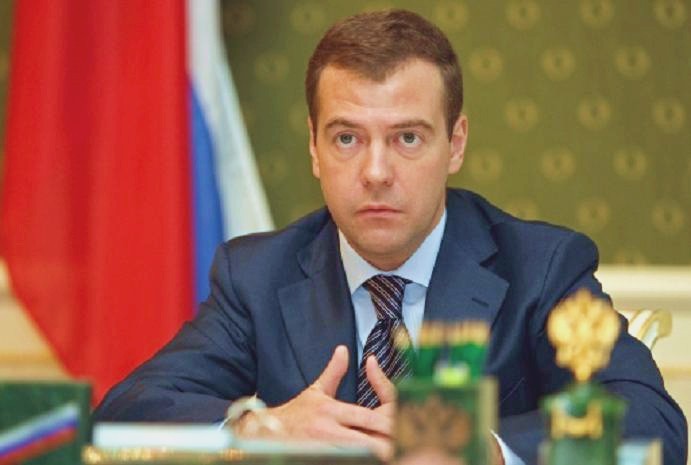Medvedev emphasises the need for reform, as he reviews Russia's 2009.
 Russian president Dmitry Medvedev has reviewed his government’s performance during 2009, in an interview with Channel One. The state has a substantial share-holding in the Moscow based station and it commands a greater audience share than any of its competitors.
Russian president Dmitry Medvedev has reviewed his government’s performance during 2009, in an interview with Channel One. The state has a substantial share-holding in the Moscow based station and it commands a greater audience share than any of its competitors. The interview, therefore, corresponds to something like a state of the nation address. It’s an opportunity for Medvedev to assess Russia’s progress and explain to ordinary Russians the course which he intends to follow in the future.
The transcript shows that the President is under no illusions about the Federation’s economic position. Whilst he is quick to point out that stability has been retained despite global financial turmoil, he is aware of the fragility of an economy dependent disproportionately upon the ’extraction and export of raw materials’.
A theme of Medvedev’s presidency has been the need for Russia’s economy to diversify. Russians are acutely aware that the nation’s economic success relies on the cost of oil. The role that plummeting prices played in the Soviet Union’s demise is often overlooked outside Russia.
During the transition between Andropov, Chernenko and Gorbachev, the cost of a barrel of crude halved. Between 1988 and 1992 Soviet oil production fell by 30%. The USSR’s ability to import foreign goods therefore collapsed and its authority was severely undermined in eastern Europe.
The psychological scars remain, and although Russia’s economic revival under Putin has been powered by the buoyant price of oil, Medvedev knows that a robust economy cannot be built upon mineral wealth alone.
The President’s predecessor filled the national reserves and built infrastructure by reasserting the state’s control of the oil and gas industries. But Medvedev acknowledges that competition is necessary if Russia’s economy is to modernise.
By his formulation, the very energy riches which have filled the Kremlin’s coffers have also impaired the development of a diverse, modern economy. But now, “we are absolutely certain that without modernisation our economy has no future …. We cannot live on out natural resources forever, no matter how vast they are”.
Medvedev is on the same territory here that he covered in his ‘Go Russia!’ article at Gazeta.ru. Economic liberalisation in tandem with development of democratic institutions and civil society. It is the type of prospectus which makes Russia watchers hopeful that the President will show his reforming credentials, should he serve a second term.
The signs of progress are already there. Medvedev has courted the liberal press. He has, on occasion, been disarmingly open about problems which Russia faces. And, in the wake of controversy about electoral violations, he has shown willing to address opposition concerns.
Indeed, in Dagestan, the Supreme Court sustained a ruling overturning the election of the United Russia candidate to the post of mayor of Derbent. Other court proceedings are taking place.
Despite the scepticism which has marked European and American relationships with Russia, Medvedev has improved the situation. He has carried out his duties without the belligerence which sometimes characterised the later Putin years.
Although the former President’s shadow still looms large, Medvedev is developing his own platform and his own programme. He remains the best hope for peaceful and successful reform in Russia.
Comments